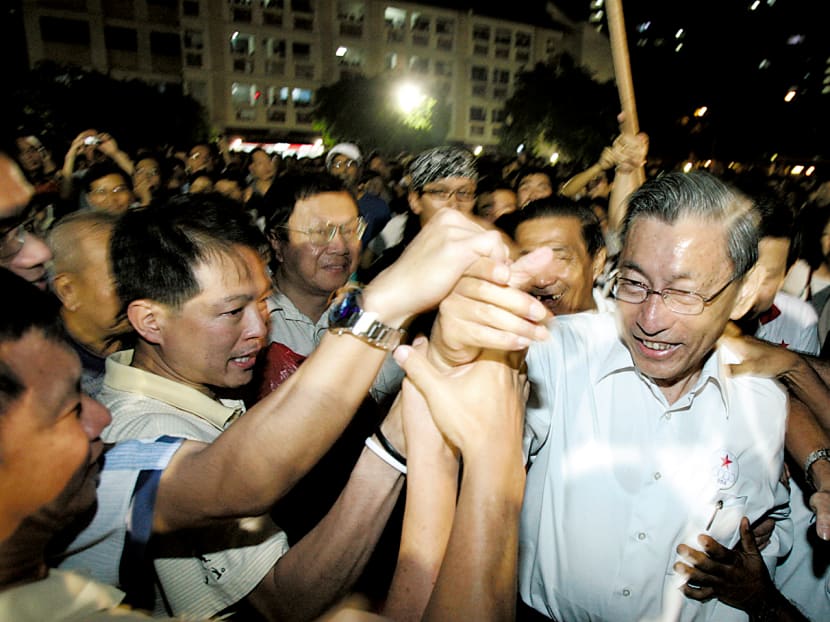The Big Read: From a ‘nobody’ to Opposition legend, Chiam See Tong leaves behind a mixed legacy
SINGAPORE — In 2009, then-Opposition Member of Parliament Chiam See Tong told the House a story about a tree in his Potong Pasir ward.
SINGAPORE — In 2009, then-Opposition Member of Parliament Chiam See Tong told the House a story about a tree in his Potong Pasir ward.
It was an exotic plant which he received from a nursery owner in the 1980s. Mr Chiam called it a “seven sisters” tree that bore fruits resembling gingko nuts.
“Of course, I straightaway told (the nursery owner) that I would be planting it in the constituency itself, and not take (it) home to plant it,” he said.
He wrote to National Development Minister Teh Cheang Wan for permission, but was denied: The planting of trees had already been mapped out by the authorities, said the minister in reply. The authorities added that the soil was not suitable.
Paying no heed to the authorities, Mr Chiam planted the tree anyway.
But on the night after the planting, someone uprooted the tree and left it in front of his Potong Pasir office. Undeterred, Mr Chiam simply replanted it at the same spot without kicking up a fuss.
“That was the treatment I got but we still persisted. I planted it in a big pot and it started to fruit, and somebody must have thrown a bottle of bleach into the pot and, sad to say, the tree of course wilted. I should have taken it home to plant it,” he said.
Mr Chiam, 84, stepped down from his position as secretary-general of the Singapore People's Party (SPP) earlier this month, effectively marking his retirement after more than four decades in politics. He has been in poor health after suffering multiple strokes and a hip injury.
He leaves behind an indelible mark as one of Singapore’s longest-serving Opposition MPs, and his legacy lives on through parliamentary records as well as the stories of residents and people who had worked closely with the “lion of Potong Pasir”, as Mr Chiam was known.
The story of the tree had been retold several times by Mr Chiam, who would use it to highlight the travails of being an Opposition politician amid the dominance of the ruling PAP.
But incidents like this typify the doggedness of the man: He would not be cowed despite being outnumbered and outgunned, and would respond in his own quiet but principled way, according to political watchers, past colleagues and long-time Potong Pasir residents interviewed by TODAY.
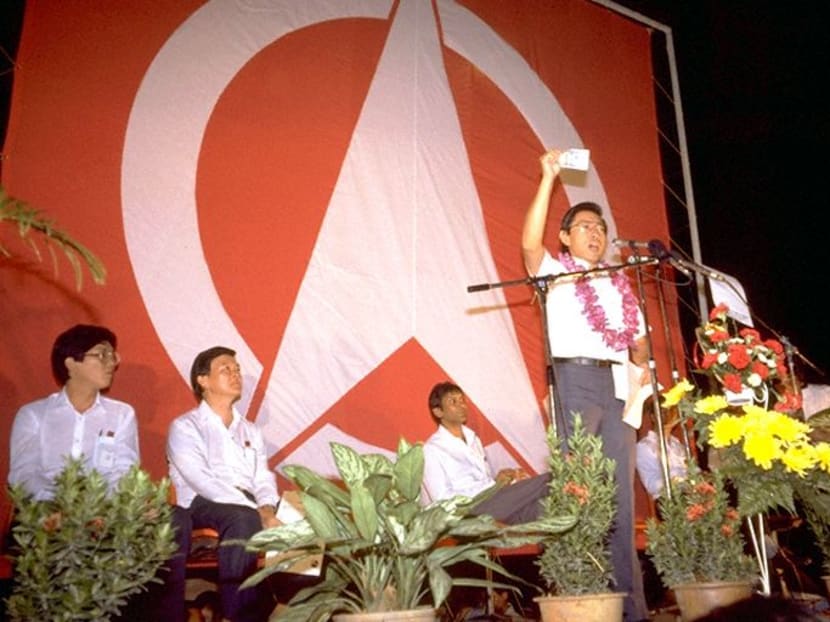
In doing so, Mr Chiam earned respect from both ends of the political spectrum for his commitment to Singapore, and was widely regarded as the man who helped define the credible, nation- building role of the Opposition, following the Republic’s turbulent political history in the ‘60s.
Mr Chiam, a former Cedar Girls’ Secondary School teacher and later a lawyer with his own law firm, had entered politics as a nobody in 1976, campaigning as an independent candidate in Cairnhill.
During an election rally in 2011, someone in the crowd shouted at a frail-looking Mr Chiam that he was “a brave man” to challenge the PAP all those years ago, at a time when few dared to join the Opposition.
He responded to the remark by saying that anyone could be a politician, and he was the living proof. “I am not actually a brave man. But I love Singapore and I love Singaporeans,” he told the rally.
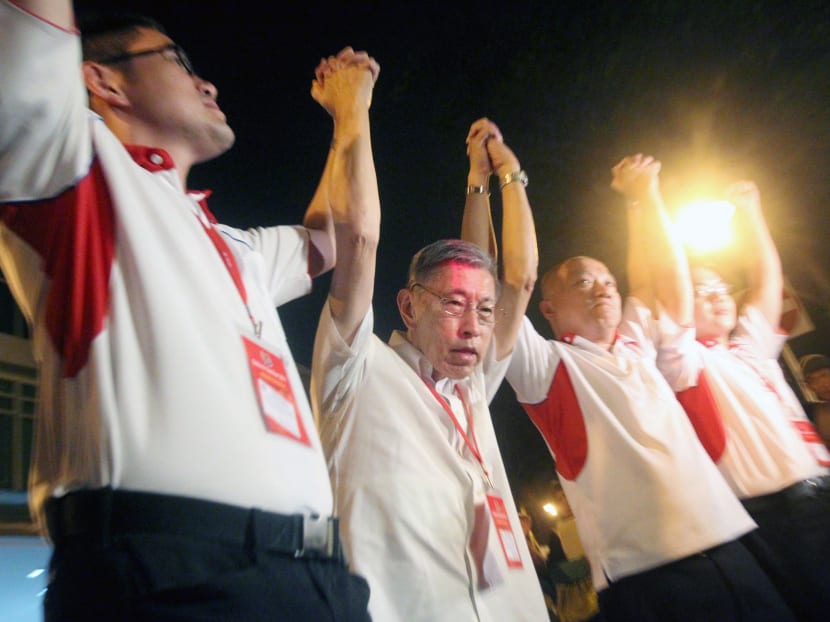
Years later, his quote would still be used to describe how a model politician — Opposition or otherwise — should serve Singaporeans.
“This is our time. And we must make of it what we will. We are not Lee Kuan Yews, Goh Keng Swees or Rajaratnams. And we need not pretend to be,” said former Nominated MP (NMP) Kuik Shiao-Yin in May last year during the parliamentary debate on the President’s address.
“We each must learn to be bold enough to live out who we are and dare to challenge who we could be. We need only be the best of ourselves, seizing the most of our times, steering our country, our way. And if we are scared, then let the words of Mr Chiam See Tong, (one of) Singapore's longest-serving Opposition member, give us courage.”
DAVID VS GOLIATH
Mr Chiam entered politics at a time when Singaporeans were used to a different kind of Opposition politics.
The 1960s saw the Barisan Sosialis, borne out of a split in the PAP, serving as a strong Opposition to the incumbents. In 1963, a number of Barisan members were among more than 100 alleged leftist leaders and trade unionists arrested and detained under Operation Coldstore.
In 1968, Barisan, under the leadership of Dr Lee Siew Choh, subsequently boycotted Singapore’s first parliamentary election following its separation from Malaysia — enabling the PAP to win all the 58 seats.
The developments in the 1960s led to a subdued political climate in the 1970s, where there was a dearth of credible Opposition politicians. Only a handful of them, including Mr J B Jeyaretnam from the Workers’ Party, were prepared to challenge the ruling party.
Mr Jeyaretnam, who was known for his fiery approach and confrontational politics, would become Singapore’s first Opposition MP since independence after winning the 1981 Anson by-election.
It was against such a backdrop that Mr Chiam made his political debut. He failed thrice in his attempts to win a parliamentary seat in 1976, 1979 and 1980, before becoming fourth time lucky in the 1984 General Election (GE).
Campaigning against PAP heavyweight candidates, such as Mr Howe Yoon Chong and Mr Mah Bow Tan, Mr Chiam would be remembered for his warhorse “Herbie”, a Volkswagen Beetle that he bought in Britain and drove overland to Singapore. He started out as an independent candidate, before setting up the Singapore Democratic Party (SDP) in 1980.
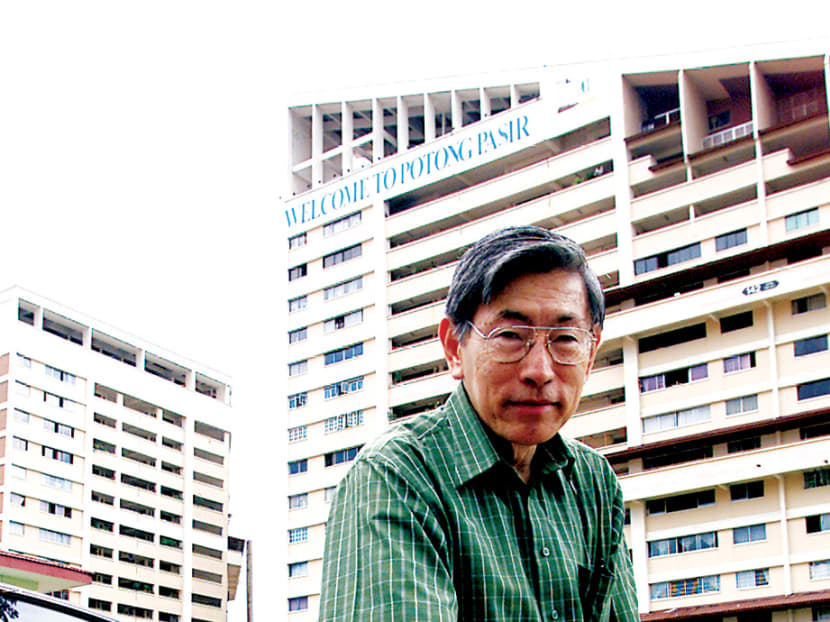
Singapore Management University law professor and former NMP Eugene Tan said: “(It was his) doggedness, his striving, that had seen him learning from his earlier electoral defeats to defeat heavyweight PAP candidates.
“It demonstrated a remarkable sense of political fortitude. He was able to take the obstacles in his stride and turn them into winning points.”
In the 1984 polls, then-Prime Minister Lee Kuan Yew told a lunchtime Central Business District rally crowd that Mr Chiam had only six O-Level credits on his school certificate, compared with his election rival, Mr Mah, who had six distinctions and two credits.
Decades later, Mr Chiam told his biographer Loke Hoe Yeong in Let the People Have Him – Chiam See Tong: The Early Years that he was “amused at the bungled attempt to discredit him”. He had scored seven credits, not six.
In his memoirs From Third World to First: The Singapore Story, Mr Lee compared the approaches by Mr Chiam and Mr Jeyaretnam in the 1984 hustings, pointing out the difference in the two opposition leaders’ styles.
In a press conference following Mr Lee's remarks in 1984, Mr Jeyaretnam slammed the attack on Mr Chiam's O-level results, adding that his party had received many phone calls from people who were annoyed with Mr Lee's comments.
In contrast, Mr Chiam sought to take the moral high ground, telling the crowd at his party’s rally in Jurong East: "We fight on issues... we don't like to smear people."
Mr Lee noted that Mr Chiam took a “shrewder line than Jeyaretnam”, and was “more in tune with the sentiments of the population, that the PAP was doing a fair job, but could do better and should listen more to criticism”.
Mr Lee said he also recognised that Mr Chiam filled the role of a credible Opposition voice that people sought. "We treated him differently, extending him respect and latitude. We hoped that if he expanded, those who opposed us would gravitate towards a non-subversive opposition," he added.
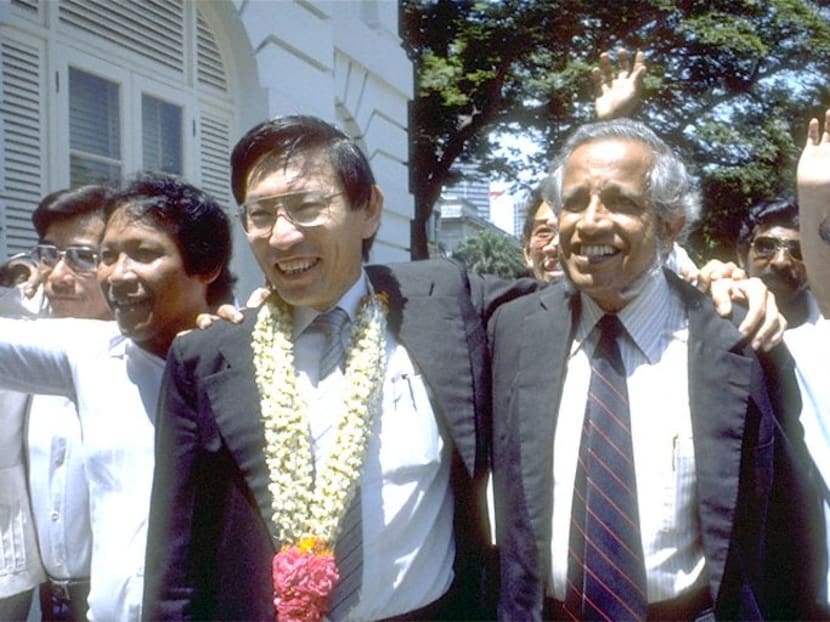
History may have turned out differently if Mr Lee had not made the comments about Mr Chiam’s academic credentials.
As it turned out, Mr Chiam found enough support to win the Potong Pasir ward in 1984. He remained as the MP of Potong Pasir for six terms, spanning 27 years.
Assoc Prof Tan noted that Mr Chiam was the first non-PAP MP to be re-elected in a General Election, proving that “it was possible to operate relatively effectively in a PAP-dominant political system”, breaking the psychological barrier that an Opposition MP was not re-electable.
Former PAP candidate Andy Gan, 75, who was fielded against Mr Chiam in 1991 and 1997, later becoming an MP for Marine Parade GRC, said: “When we were both serving Potong Pasir in different capacities, I found Mr Chiam a gentleman.”
CHIAM’S LEGACY AS A PARLIAMENTARIAN
Beyond the ballot box, it was in Parliament that Mr Chiam established his credibility as an honest MP who could hold his own against the PAP, political analysts said.
He would regularly provide an opposing view on a wide-range of topics brought up in Parliament.
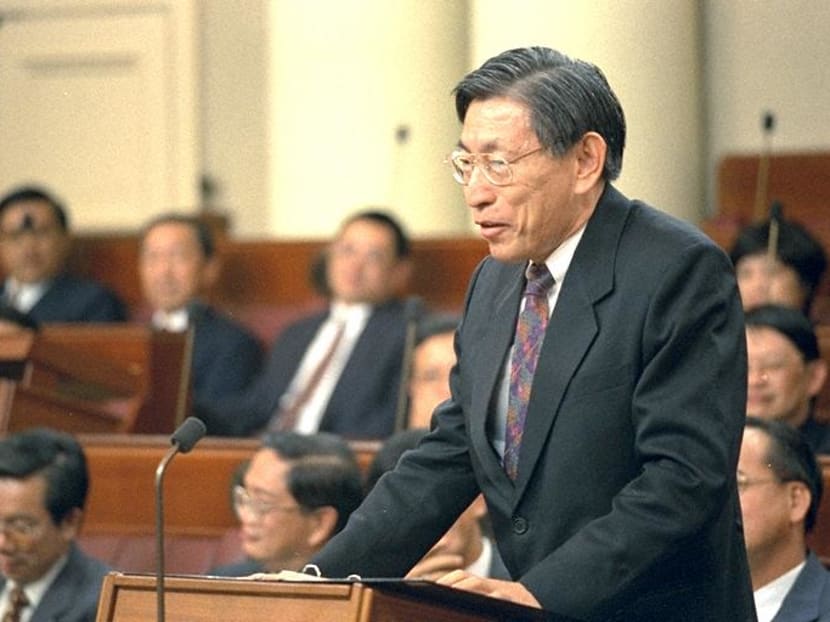
Nevertheless, he had a few pet topics: Forming an economic union with Malaysia, education issues, problem gambling, as well as political topics such as the Group Representation Constituency system, the elected presidency and the Non-Constituency MP scheme.
Unlike the fiery rhetoric of Mr Jeyaretnam, who attempted to counter the PAP at every instance and was a thorn in the latter’s side, Mr Chiam was more soft-spoken and a less charismatic parliamentarian, said the analysts.
Right after their respective 1984 electoral victories, Mr Jeyaretnam said he hoped to be more assertive and aggressive. Mr Chiam, on the other hand, said: “Wherever possible, we will cooperate with the PAP and find solutions to problems… I want to help PAP in its responsibility of nation-building.”
Assoc Prof Tan noted that the late Mr Lee had once said that Mr Chiam was the sort of MP that would be a credit to the ruling party if he were a PAP MP.
“That was the measure of the respect Mr Chiam commanded politically, never mind that he fumbled and blundered,” Assoc Prof Tan added.
Mr Chiam’s speeches were often not noteworthy and were prone to contain comical errors or logical flaws — something which the PAP MPs often picked up on. His biographer Mr Loke said during his early days in Parliament, Mr Chiam was often a “one-man policy team”, who lacked the research capabilities that the PAP had.
Yet, he spoke up and questioned policies and statements when it mattered.
Political analyst Derek da Cunha said one defining moment was in 1992, when PAP MP Choo Wee Khiang gave a speech in which he said he drove to Little India one evening to find it “pitch dark, not because there was no light, but because there were too many Indians around”.
Mr Choo would later apologise in Parliament — after Mr Chiam stood up to object to his remarks.
Dr da Cunha noted that Mr Chiam was the only MP to do so. “It is unscripted moments like this one that truly reveal a person’s real heart. And, it can be said without contradiction, that Mr Chiam has had a heart for everyday Singaporeans,” he said.
That was Mr Chiam’s concept of a “loyal opposition”. And when the country was criticised by foreign sources, he would close ranks as a Singaporean and speak out for Singapore.
When the Republic received a barrage of criticism from the Philippines over the execution of a Filipino domestic worker for murder in 1995, he spoke up for Singapore during a parliamentary debate about the case.
Mr Chiam said: “The Opposition, being loyal to the country, must side our country… I would not allow the foreign press to use the Opposition as a club to hit at our Government.
“All Singaporeans, whether they are supporters of the ruling party or the Opposition, have to be loyal to Singapore and when there is a dispute with a foreign country, they must close ranks with the ruling party and all Singaporeans and stand united.”
The speech received praise from other members of the House. Subsequent speeches by PAP MPs, including those in the debate the next day, mentioned Mr Chiam’s speech.
“I want to thank Mr Chiam for being pro-Singapore. I think he speaks well for the development of democracy and the growth of a responsible Opposition as represented by Mr Chiam,” said then-Bukit Batok MP Dr Ong Chit Chung.
The credibility he gave to the Opposition is the legacy that Singaporeans will ultimately remember Mr Chiam for, said Assoc Prof Tan.
“A healthy Opposition in and out of Parliament helps keep the PAP on its toes, encourages the PAP to govern better, and enables Singapore to be governed even better,” he said of Mr Chiam’s impact.
This legacy is especially visible today among the various Opposition parties, said Mr Chiam’s former party colleague Desmond Lim.
Mr Lim currently leads the Singapore Democratic Alliance (SDA), which Mr Chiam helped set up after his falling out with the SDP.
“The Workers’ Party has taken this moderate approach. Even the SDP, under Chee Soon Juan, has changed its approach, acknowledging that this is the type of Opposition politician that Singaporeans want — that is why I say his legacy has lasted all these years,” said Mr Lim.
Emeritus Senior Minister Goh Chok Tong said as much in his biography Tall Order: The Goh Chok Tong Story: “He had his own purpose in politics, which is to create a two-party Parliament. There is nothing wrong with that. We did not like it, but we said you try, so he tried.”
“So, Chiam would be tough to get out of Potong Pasir because he fitted the thinking of the people and is decent, a middle-of-the-road kind of an MP. If you want to campaign against him, it would be very difficult to get him out.”
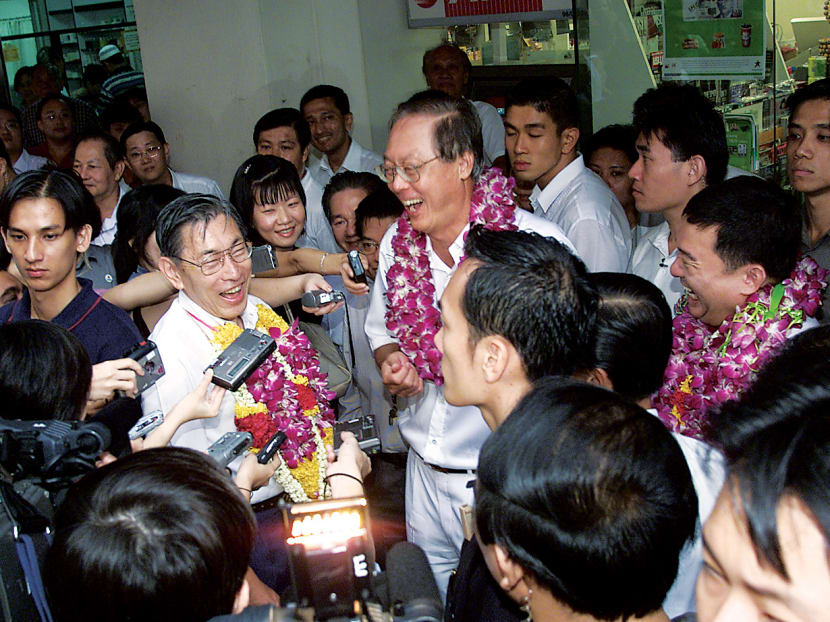
Mr Chiam also publicly took fellow Opposition politicians to task when he felt they were out of line — much to the consternation of some members of the Opposition.
In an interview with TODAY in 2004, Mr Chiam was asked about criticism that he had become less aggressive towards the PAP over the years.
He replied: ''If you really want a truly democratic country, you must have an Opposition. Of course, the Opposition must be constructive, sincere and responsible to build up Singapore.
''I think the PAP, whatever you say of them, whether they are doing a good job or not, they still need somebody occasionally to tell them: 'Hey, you may not be going exactly in the right direction'. A nudge here and there — I think they want that situation.''
HOW HE FARED AS DE FACTO OPPOSITION LEADER
As the pioneering moderate Opposition politician, Mr Chiam knew that many Singaporeans agreed with him on the need to have alternative voices in Parliament. He attempted to achieve this goal by carrying out the “by-election effect” strategy during the 1991 General Election, which saw the SDP capturing three seats and the WP winning one — the best showing by the Opposition for two decades, before the 2011 GE.
The strategy was crafted around the time Mr Chiam suffered his first stroke in 1989. With Mr Jeyaretnam disqualified from Parliament after he was found guilty of making a false declaration in his party’s accounts in 1986, Mr Chiam had ended up as the sole Opposition MP.
The strategy meant having to coordinate all Opposition parties to contest in fewer than half of the seats available, ensuring that the PAP would be guaranteed walkovers in the majority of the constituencies.
Mr Chiam sensed that the electorate would therefore vote freely for the Opposition in the remaining seats and avoid the possibility of a “freak election” — something which Mr Goh had warned against in 1988.
“Mr Chiam was the strategist behind the strategy — that with the PAP having returned to power on Nomination Day, the voters should not be afraid to cast votes for the Opposition on Polling Day,” said Assoc Prof Tan.
The idea likely first came from a WP member, wrote Mr Loke in his latest book The First Wave: JBJ, Chiam and the Opposition in Singapore. But Mr Jeyaretnam was not receptive to the idea, as he wanted to field candidates for all parliamentary seats.
It then fell on Mr Chiam to carry out the strategy, said Dr da Cunha.
“Even though it is said that the idea for the by-election effect strategy originated with someone else, only Mr Chiam, then the only fully elected Opposition MP, had the moral authority and gravitas to convince the leaders in the other alternative parties to contest less than half the seats in 1991. It was no mean feat,” he said.
Mr Chiam was made the unofficial leader of the Opposition when the new Parliament was sworn in after the 1991 GE. This, however, did not last long as a public fallout between him and his then-protege Dr Chee and other SDP leaders led to Mr Chiam’s expulsion in 1993 from the party he founded.
A court later reversed the expulsion, which allowed Mr Chiam to retain his Potong Pasir seat in the 8th Parliament until the 1997 GE. Under Singapore’s electoral rules, MPs have to give up their seat if they are no longer a member of the party that they had contested under.
After his term in the 8th Parliament ended, Mr Chiam joined the SPP in 1996, which was founded two years earlier by an SDP faction of pro-Chiam supporters. Later, SPP became a founding member of the SDA coalition of Opposition parties in 2001.
But further politicking between the SDA’s component parties led to Mr Chiam’s SPP leaving the alliance in 2011.
The split also saw Mr Lim leaving the SPP to head SDA. He was once seen as Mr Chiam’s right-hand man but fell out of favour.
He told TODAY it was a terrible feeling to be on Mr Chiam's bad side but he said Mr Chiam does not bear any personal grudges towards people.
"He is like a father figure to us all. We all see ourselves as students from the ‘Chiam See Tong school of politics’," he said.
As several observers have noted, Mr Chiam was unable to lead and grow the Opposition, despite his individual achievements as an MP.
Said Assoc Prof Tan: “He never succeeded in grooming successors who could push the Opposition space. Mr Chiam was unable to recruit and mentor aspiring politicians who could have helped him and his party be even bigger players in Singapore's political landscape.”
Therefore, Mr Chiam's impact could be said to be “disproportionately small” when viewed against the backdrop of being Singapore's longest serving opposition MP before 2011.
Assoc Prof Tan added: “He could be criticised for not being entrepreneurial politically and for not being ambitious.”
POTONG PASIR: CHIAM’S KIND OF TOWN
Looking back at his colourful political career, some observers said Mr Chiam’s greatest asset was his strong ties with, and great affection for, his constituents.
Stories abound of how Mr Chiam would often use his own money to help residents in need, for example.
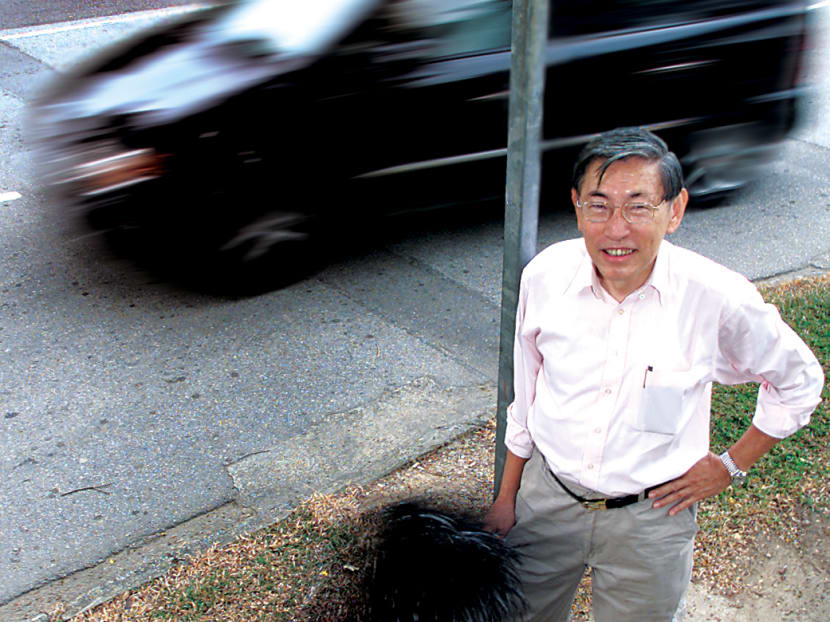
In Parliament, he would speak out against the idea of an MP playing the role of a town councillor, arguing that municipal management should not be politicised. He once tried to hold a democratic vote for town councillors to serve in the Potong Pasir Town Council, much like the British system of local governance, but failed as there were too few candidates.
Despite his views on MPs acting as estate managers, it was the strong political and social compact that Mr Chiam had forged with his Potong Pasir constituents that led them to continue to stick with him for 27 years after his 1984 win — even though this would mean that the Opposition ward would not get all the bells and whistles afforded to a PAP one, residents past and present told TODAY.
PAP tried all ways and means to win back Potong Pasir voters, including trotting out the PAP heavyweights at rallies and using multi-million dollar upgrading projects as carrots.
But Potong Pasir voters were unswayed in every election that Mr Chiam contested in since 1984.
It was his sheer love for his residents that won over many hearts and minds, said SDA’s Mr Lim, who had served as Mr Chiam’s town council adviser.
Once, the town council had received complaints about pests and hygiene issues coming from a resident’s home. They then discovered that the owner was an elderly cardboard collector who would hoard tall stacks of used cardboard in her flat, to the extent that it was difficult to move around the flat. It was also infested with cockroaches, said Mr Lim.
Town council workers wanted to use a by-law to enter the home and clear the rubbish. But the owner got very upset and refused to let the workers take out the cardboard which was his only source of income.
“We notified Mr Chiam, and when he spoke to the resident, he offered to buy the cardboard in her home with S$100 of his own money and she relented, allowing town council workers to remove the rubbish and clean her home,” said Mr Lim.
Three months later, the neighbours complained again — stacks of cardboard once again appeared in the home. Mr Chiam again paid the woman S$100 out of his pocket, but the problem never really stopped, said Mr Lim.
Mr Chiam would continue to pay her every three to six months for the rest of his term as MP.
Such generosity extended beyond Potong Pasir. His philanthropic spirit led to the creation of the Chiam See Tong Sports Fund in 2017 to benefit disadvantaged athletes.
SPP’s Jose Raymond, a founding member of the fund, recounted how his father’s Jurong flat was at risk of being repossessed by the Housing Development Board due to arrears. But Mr Chiam paid the debt for Mr Raymond’s father, who was an SDP volunteer when Mr Chiam was leading it.
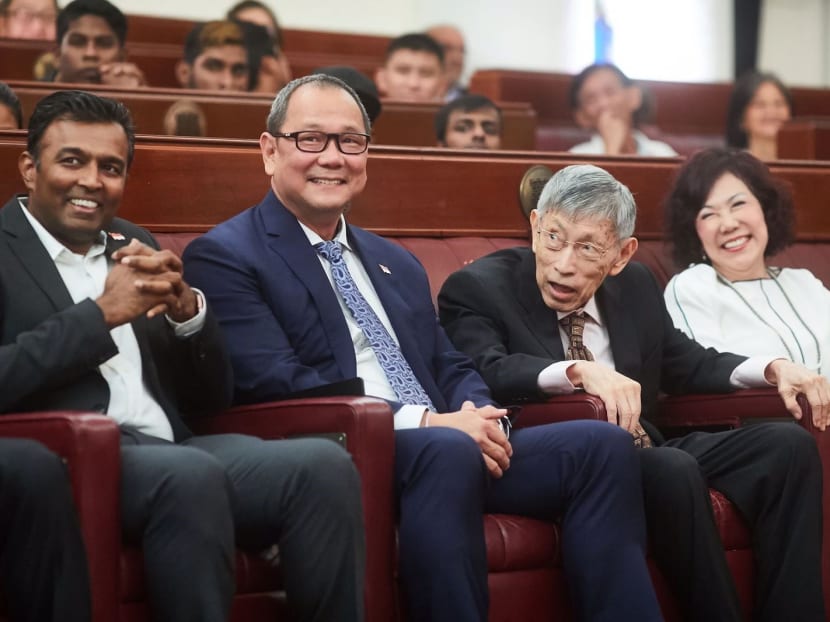
Nanyang Technological University Assistant Professor Liew Kai Khiun, a Potong Pasir resident of more than 20 years, said his neighbours “were willing to pay the price of being denied government estate upgrading projects for broader political ideals of having more Opposition voices in Parliament”.
This was the essence of Mr Chiam’s motto for Potong Pasir, “My Kind of Town”, before its municipal offices were absorbed into Jalan Besar Town Council after the 2011 GE.
During the 2011 GE, Mr Chiam moved out of his Potong Pasir stronghold to contest in the Bishan-Toa Payoh Group Representation Constituency, where he eventually lost.
In Potong Pasir, PAP’s Mr Sitoh Yih Pin defeated Mr Chiam’s wife, Lina, who was the candidate put up by SPP.
Some residents told TODAY that they still wondered what the outcome would be if Mr Chiam had decided to remain in Potong Pasir.
Under the PAP, Potong Pasir has changed quite a bit, with several new developments being built. Nevertheless, vestiges of Mr Chiam’s influence linger on in the estate.
In 2017, when Mr Sitoh upgraded the park in front of Blocks 136 and 140 — known for their iconic sloping roofs — he gave “strict instructions to preserve (Mr Chiam’s) plaque and his two lions at the entrance”, he had told The Straits Times.
Mr Sukhvir Singh, 48, who has lived in the town for 28 years, remarked that till today, taxi drivers would start talking about Mr Chiam when they found out that Potong Pasir was the destination.
Said the bank analyst: “It felt special being a resident of Potong Pasir back then to know that this was a different kind of town. He may no longer be our MP, but he will always be a part of Potong Pasir.”

